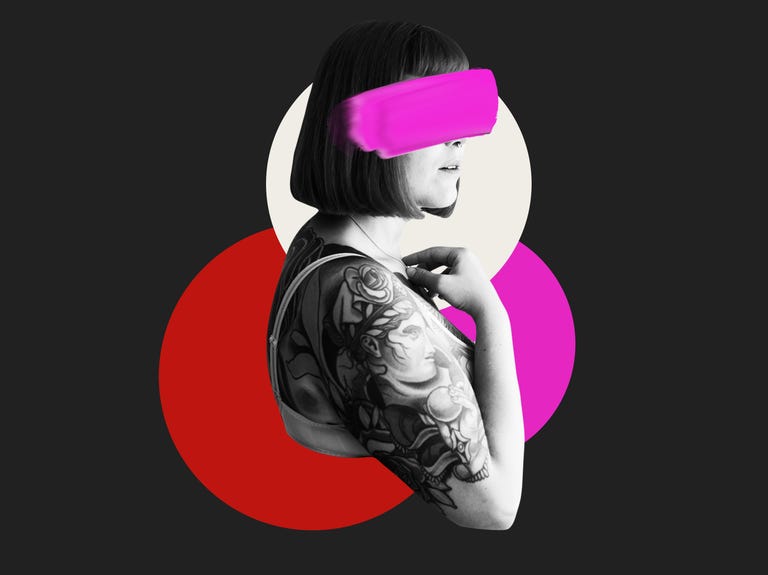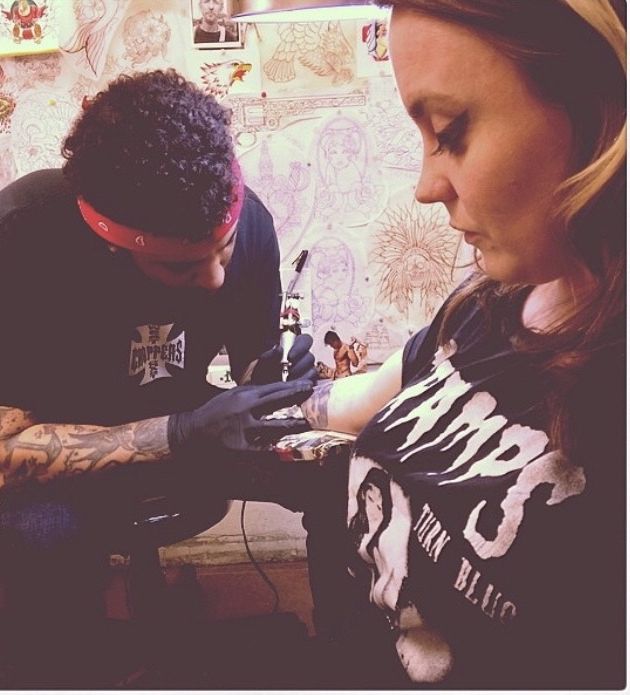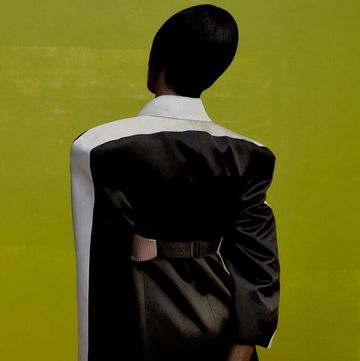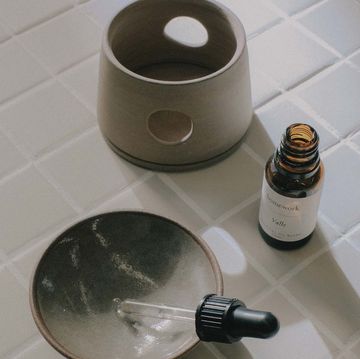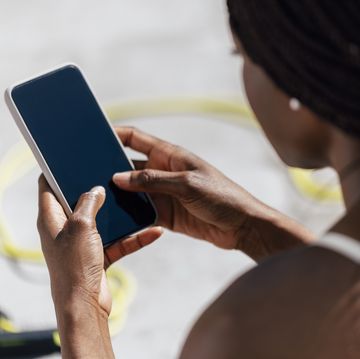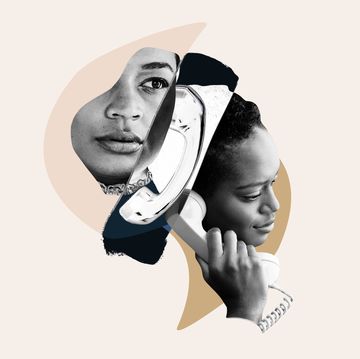It was a sticky summer day, garbage baking on the sidewalks, when I moved into my first proper New York apartment. It had many things decidedly not going for it (the absence of natural light; the DIY plumbing; my neighbour who watched loud porn at 10am) and two things that did. The location - in the middle of the West Village on Christopher Street - and its immediate neighbour: a tattoo parlour.
It was 2012: I'd arrived in the city several weeks before and my mind had been unravelling at speed since. Loneliness, my drinking-to-blackout and an undiagnosed mental illness - borne from the trauma of childhood sexual abuse - collided and curdled within me; the throb and screams of the hot city turning me even more sour. On the very worst days, I felt that I'd left myself entirely - that I'd travelled too many miles from my own mind to ever make it back.
But a part of me, in the moments when the light came in, thought that I could lasso my mind within my control, that I could bring it home. But only if I reclaimed my body first. Branded it myself. I'd arrived in New York bearing five tattoos acquired over the previous three years. So, I knew what would likely follow the day I bump, bump, bumped my giant pink suitcase up the three flights of stairs to my new home. That the itch of ownership would propel me next door, dollars in hand.
I was at that door, through it and in the chair within a month of moving in. I'd been drinking at the bar in the French restaurant around the corner, the itch becoming a fire. I filled in a form confirming that I hadn't drunk any alcohol actually and within 20 minutes had my forearm exposed, pinned to the black arm rest, as I awaited the thrill that rode in on the back of the buzzing tattoo gun.
It's something I'd been close to addicted to since my very first tattoos. A Joy Division lyric on my back; a pair of cherries on my inside wrist; a 1950s pin-up on my upper arm. The noise yes, but really, the pain. And specifically, the relief that comes with your pain being made real. Not just something you can feel, but actually see. My trauma climbed up out of my skin, leaving its inky trail on my body; a path from where I'd been to where I was and where I might one day be.
And a part of me, the angriest part, wanted people to see what had been done to me, in full view of the world. Why should they get to look away?
My tattoos became nothing less than an act of defiance. 'But what about when your tastes change?!' people would say while reminding me they'd last forever. 'What about when you're 70?' Yet the more I was warned against them, the more my desire for them grew.
A desire that fully bloomed when men would react to them with horror. The rich married guy in a New York bar who exclaimed with disgust that, 'It's like putting bumper stickers on a Ferrari'; the man I was seeing who repeatedly said hopefully, 'You are done now, right? You won't be getting any more'; the man who told me I'd 'actually be pretty' if I hadn't 'ruined' myself.
I've always thought there are two effective ways to disappear: to become invisible or to become so visible that it makes others blind. The too-much-ness stopping the light from hitting their retinas.
And in that way, my tattoos protected me - they were a barrier between me and them, made out of metal, ink and blood. I knew many men wouldn't like them, that it would make them like me less. This felt like sweet safety from men and what they could do. 'This is not yours. I'm not yours,' I'd want to say when their repulsion was clear.
But don't mistake these tattoos, or the ones that followed - a solemn-faced woman on my right forearm, a skull and crossbones on the middle finger of my right hand - as a cry for help. Mine weren't, aren't. They're a statement of intent. My vow to snatch my physicality from those who'd stolen it; taken it without my permission and then shoved it out back out into the world, all used up, contorted in their image.
Each tattoo was a fresh start. The needle that pounded and pricked, the ink that was dragged down into the dermis. My skin was reimagined, quite literally redrawn. When I looked in the mirror, when others looked at me, I was no longer the girl who was pared and peeled. I was the woman who said: 'No more, never again. You won’t claim me, you can’t, because I’ve claimed myself.'
I was, I’m ashamed to say, deeply regretful of my tattoos for a while. Even embarrassed by them. I didn't want to add to the narrative that so often plays out around women and tattoos. But I no longer liked the ones I'd got on a booze-driven, often furious whim (if I ever did in the first place). And as my mind steadied in the storm and the spectre of survival took a more solid form, I looked at my body with new eyes. It was, I knew, mine. There was no-one else's it could be. And though it had been my original intention, I grew increasingly uncomfortable with wearing my pain on the outside. Of having it scratched into my skin. When I walked into a room, I felt that people knew my story already, at just a glance.
But now I choose to proudly see them as a written testament. My testament. The words and shapes and colours that tell my story before my lips can. Even if the only person listening is me. A story that began with trauma, was powered by pain and is now defined by neither. My past is written on my body, but my future won't be. I'll never get another tattoo, there'll be no new inky path to follow. I don't need one to know that I am, for the first time, free.
'Coming Undone: A Memoir' by Terri White is out in paperback now and available to purchase here.
Like this article? Sign up to our newsletter to get more articles like this delivered straight to your inbox.
In need of more inspiration, thoughtful journalism and at-home beauty tips? Subscribe to ELLE's print magazine today! SUBSCRIBE HERE
